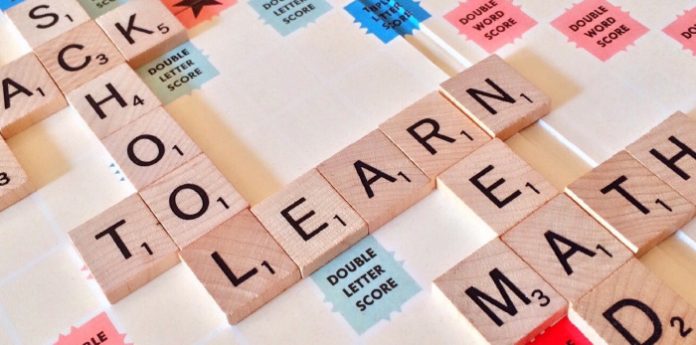Teachers who want to excel in their approach to education need to understand the core philosophy of education behind the system. By fully gauging the role of learning in society and the various philosophical schools of thought, you can expand your horizon beyond the classroom.
Math & ELA | PreK To Grade 5
Kids see fun.
You see real learning outcomes.
Watch your kids fall in love with math & reading through our scientifically designed curriculum.
Parents, try for free Teachers, use for free
You can also inspire students to learn holistically and improve their performance with the right teaching philosophy and approach.
Whether it be math or science, imparting knowledge from a place of wisdom is essential to teaching effectiveness across grades. That’s why educators are trying to understand the different teaching philosophies and extract insights on what can be helpful in the long term.
4 Types of Educational Philosophies for Teachers

When we say that different teachers have different styles, it is an informal way of understanding the differences between teaching philosophies. We can have a unique teaching style based on our core beliefs about education and the role we play as teachers in the lives of our students. We can gauge more about what techniques we can incorporate by understanding the different philosophies of education.
Related Reading: Best Educational Goal Examples that Matter for Students & Teachers
1. Realism
The philosophy of education, known as realism, focuses on the role of scientific observation, experimentation, and hands-on learning. It emphasizes the benefits of students grasping an intuitive sense of any subject or topic.
It also understands the limitations of bias and asks teachers to inculcate a desire to learn and expand the mind. Realism encourages practical knowledge and building upon that knowledge base for a more complex understanding of different subjects.
2. Pragmatism
Pragmatism focuses on the core value of problem-solving and imparting the right skill sets that help students solve specific challenges. You can use the philosophy of pragmatism in your approach to teaching when you want to improve student output and help kids learn how to tackle complex problems.
You can also use pragmatism to help weaker students who need expedited assistance in improving their grades. These students may not have the proper facilities to focus on subjects through the lens of realism, in which case teachers can strengthen their ability to solve problems directly.
3. Perennialism
This philosophy of education relies on traditional teachings as core foundations through which you can teach your students. The basic laws of math, grammar, physics, and chemistry are emphasized and taught to students who are actively learning.
Perennialism may be perceived as non-collaborative, but it can be a strong pillar for teachers to establish group learning. Schools often use perennialism during the earlier years of teaching to ensure consistency across classes for standardized testing.
4. Behaviorism
Behaviorism looks at the role of positive and negative reinforcement to establish specific outcomes. You can use this philosophy of education to create positive habits in the lives of your students through the proper positive reinforcement techniques.
You can also create repeatability and course adherence by rewarding successful performance with stars, gifts, names on boards, and other behaviorism tools. You can also set long-term and short-term rewards to incentivize students to continue improving their performance.
Why Should Teachers Focus on the Philosophy of Education?

Teachers play multiple roles in the lives of their students, from being mentors to confidants. Understanding our teaching philosophy’s impact on student development over time is essential. We can make them fall in love with a subject by using the proper techniques that best resonate with our students.
The role of teachers as mentors
Teachers are mentors in shaping how students think about challenges and problems. Mentorship also relies on the right teaching philosophy, such as rewarding positive behavior, focusing on collaborative learning, and prioritizing harmony. Teachers need the right philosophical approach when applying for a new role and extracting maximum potential from their students.
Teaching through empathy
The philosophy of education focuses heavily on understanding what students feel when being taught. By putting ourselves in our students’ shoes, we can uncover the benefits of multisensory learning, learning tools, artifacts of teaching, and the impact of engagement. Through empathy, we can also find our philosophy of education.
Teaching Impacts Societal Growth
The future of our world depends on teachers as we navigate the complex challenge of educating the next generation of leaders. Concepts such as essentialism and pragmatism can be used when thinking about how our teaching methodology will impact the future with what values we are teaching.
How to Select the Right Type of Philosophy for Teaching?

When you consider the inherent insights driven by a philosophy of education, you emerge at a crossroads between epistemology and pedagogy. How we teach is intrinsically related to why we teach and our goals with teaching. Whether pre-K kids or college students, how we approach education is one of the most critical aspects of our skills as teachers.
The right type of philosophy of education depends on the following factors –
1. Types of students in class, their proficiency, and what they respond to best.
2. Your role as a teacher is to be a mentor & counselor in their lives.
3. The impact of your curriculum on their innate grasping of the concept.
4. The time and resources available to proceed with the right approach.
5. The use of technology in the teaching program to scale approach and philosophy.
Ultimately, you must test different philosophies and leverage the ones you feel most comfortable with. While some students may respond to behaviorism better, others may prefer the practical benefits of realism.
You can use different philosophies, techniques, and tools to customize your teaching philosophy based on the class type and your goals for the year.
The Role of Teaching Philosophy in the Digital Age

With more schools using hybrid online and offline teaching models, the role of philosophy amplifies significantly. You need the right teaching approach, either essentialism or pragmatism, to scale up your teaching strategy. By focusing on your teaching approach, your students can learn in an environment conducive to learning.
Related Reading: Best Tips for Teaching Preschoolers
You can also leverage the principles of constructivism and understand how group participation impacts performance in the classroom. Whether a group activity is designed with an objective in mind is a critical philosophical question that you should ask yourself. Using the right digital tools will also be more effective when understanding the philosophical benefits of software solutions.
Teachers Can Make Learning More Fun and Engaging With the Right Online Solution
SplashLearn aligns with your teaching approach and prioritizes student engagement and fun learning. With games, activities, and worksheets, SplashLearn encourages students of all ages to learn at their own pace and improve performance through intuitive learning. Students can practice on their smart devices or play games in class while being tested through complex challenges. Both math and ELA games are designed to boost output and bring back the joy of learning for every child.
Teachers can create a free account and get started here.
Want to talk to us about our offerings? Send us an email here.
Frequently Asked Questions
What are some of the other philosophies of education?
Apart from student-oriented, teacher-oriented, and society-oriented philosophies, there are also other philosophies of education. Essentialism, progressivism, social reconstructionism, etc., also form a part of the teaching approach of some teachers. It is best to formulate your strategy for teaching philosophies.
Why is education important?
The right type of education can change a person’s life forever. By providing the right set of skills during their formative years, you can significantly enhance a child’s potential. Education also sets the foundation for deeper learning, role in society, output in the workplace, etc.
What is Socrates' philosophy of education?
At its core, Socrates believed that we must know our ignorance and then find the right teacher to help close the gap within our understanding. This means that teachers play a vital role in developing their students’ understanding and bridging knowledge gaps as they progress.
How can I find my teaching style?
Your teaching style needs to be developed over time but can be initiated with your essential “why.” You should focus on why you want to be a teacher and use that as a starting point for your teaching style. Whether you want to change how students learn or shape the next generation, the core reason for teaching can map your way ahead.
























